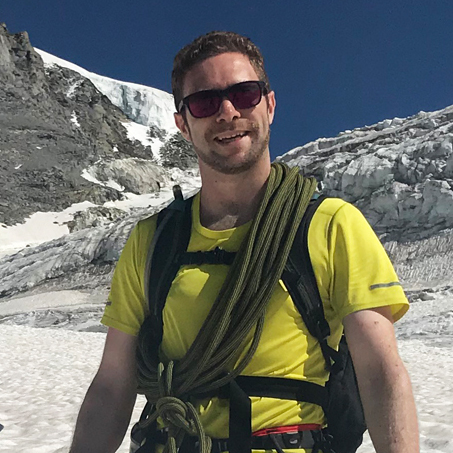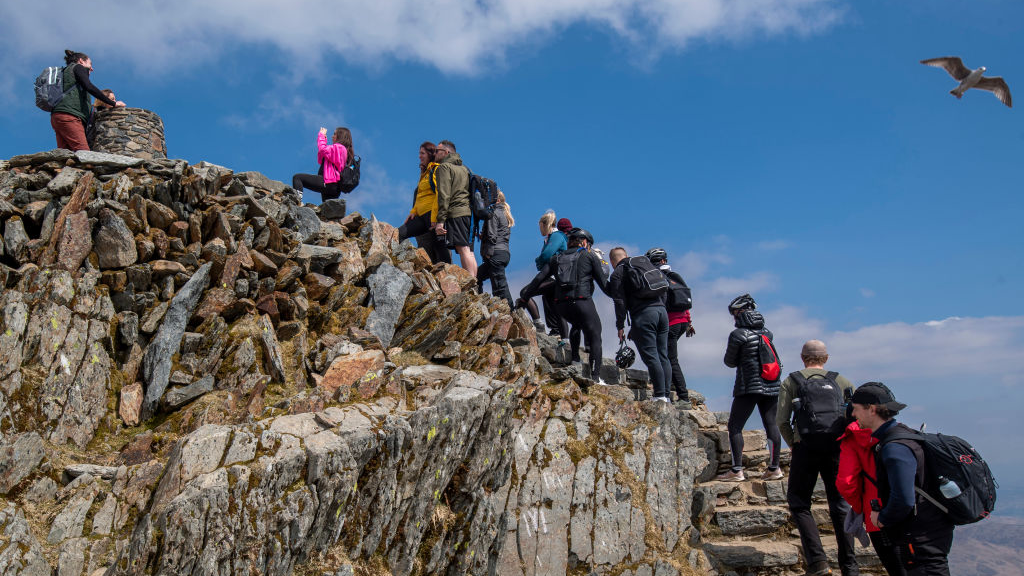5 reasons you need a compass: safe and enjoyable nav in the great outdoors
We asked one of our hiking experts to explain the reasons you need a compass: from the rewards of backcountry navigation to its safety benefits and more
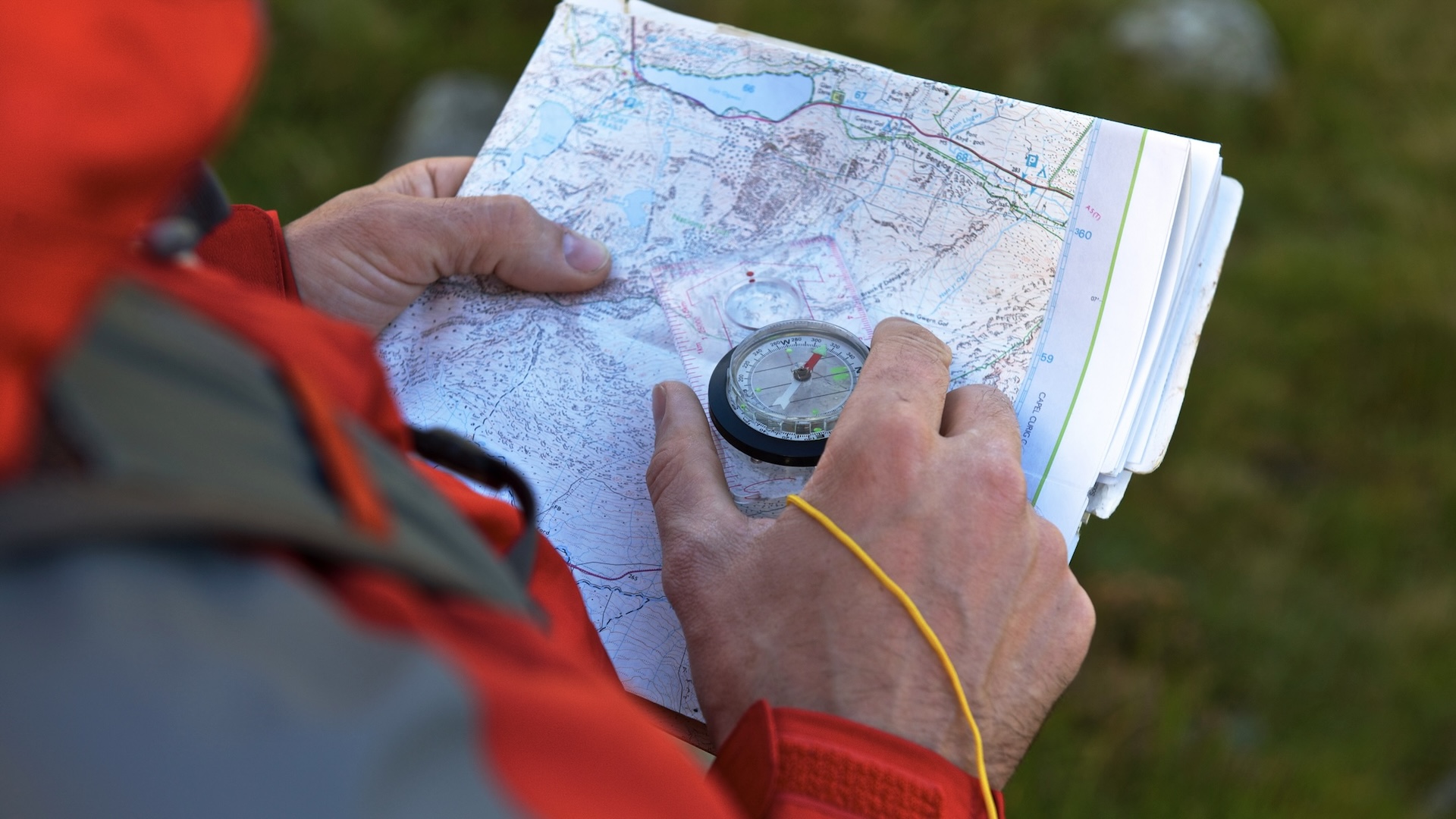
There are several reasons you need a compass if you’re serious about outdoor adventure. Let me take you through part my Mountain Leader assessment to give you a flavour of a couple. One of the trickier tasks was the night navigation. We’d set up camp and were about to venture back out into the dark armed with our headlamps, topographical maps of the region and our compasses. We were individually assigned navigational legs to take charge of, leading the rest of the group across complex terrain and through the pitch black to specific points among the peaks.
A combination of faultless map reading, precisely taken compass bearings, accurate pacing and a solid grasp of what the terrain was doing underfoot was needed to successfully pull off each leg of micro navigation. The feeling of satisfaction of navigating in such a way cannot be understated, neither can the usefulness of such skills in the great outdoors.
These are just a couple of the reasons you need a compass for your backcountry escapades. I’m here to delve further into these, as well as provide a few other reasons you’ll want to invest in this classic navigational tool.
Reasons you need a compass

1) Proper navigation is hugely rewarding: finding your way through the backcountry using a map and compass is good fun and provides a sense of achievement.
2) You’ll become a more skilled navigator: using a compass will make you less reliant on digital aids like GPS devices and hiking apps and enhance your ability to navigate in any situation.
3) A compass never runs out of battery: unlike digital aids, a compass requires no power source, so will work anywhere in the world, at any time.
4) You can get your bearings when in a fix: having a compass allows you to safely navigate in some very tricky situations.
Advnture Newsletter
All the latest inspiration, tips and guides to help you plan your next Advnture!
5) It will help to enhance your outdoor lifestyle: if you have ambitions to gain mountain qualifications or lead groups in the great outdoors, being able to use a compass is an essential skill.
Meet the expert
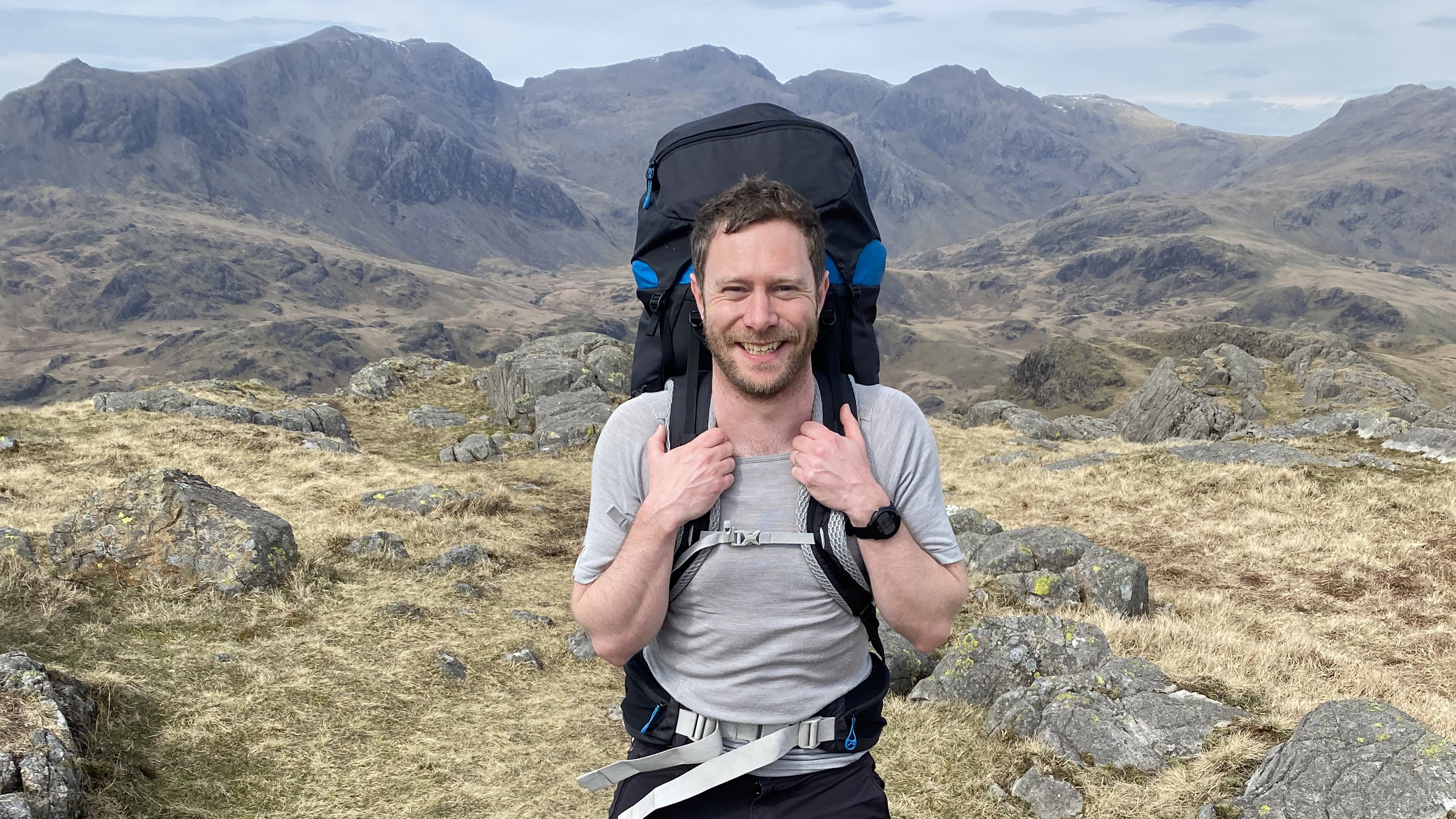
Alex is a qualified Mountain Leader and former President of the London Mountaineering Club. He believes that the best approach to navigation is to deploy a topographical map and compass alongside digital aids, thus covering all bases.
Today's best deals
What is a compass?
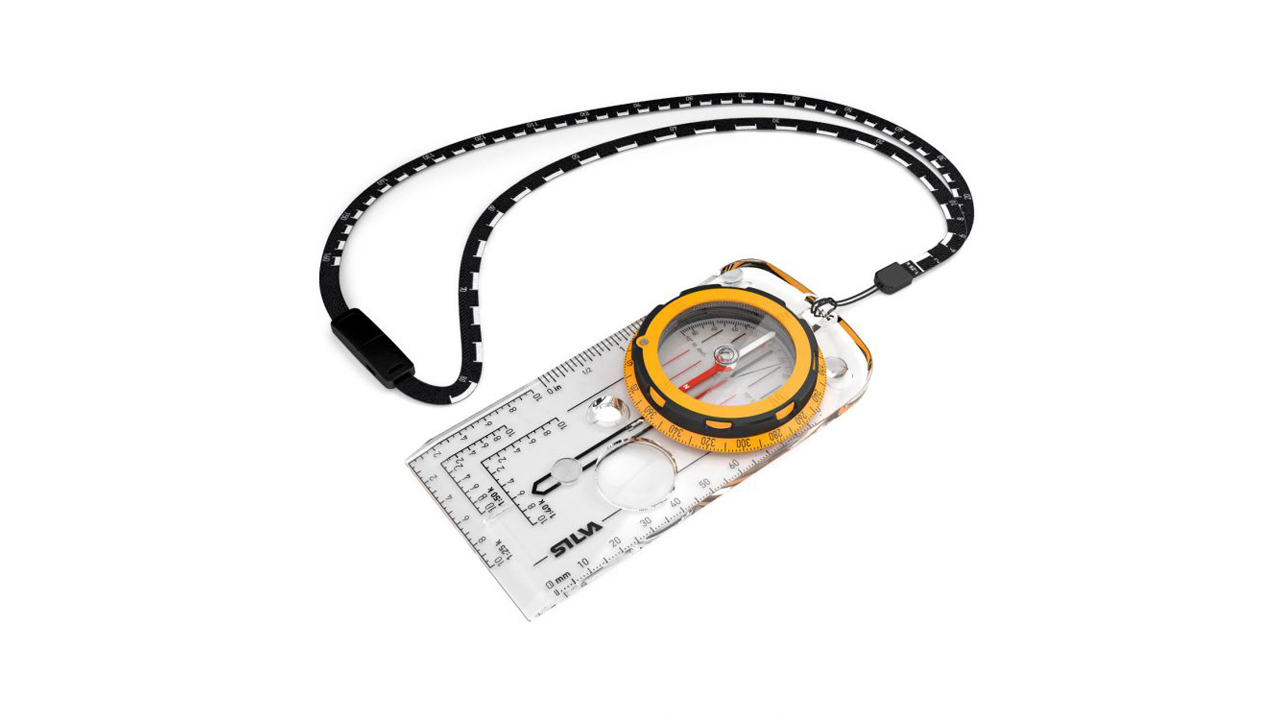
A compass is a device that tells you which direction you’re heading in, using north as a reference point. There are various types of compass but for the purposes of this feature, we’re talking about standard magnetic base plate compasses that are used the world over by hikers, mountaineers, explorers and backpackers.
Magnetic compasses are mechanical devices containing a magnetized needle that’s free to move within the compass housing. The needle responds to the Earth’s magnetic field, its red arrow pointing towards the North Pole, a direction known as magnetic north. This is the simple premise behind all magnetic compasses and they allow you to then work out in which direction you're facing. As they use magnetism to do this, there’s no need for a power source, so they don’t need charged and they don’t need batteries.
Let's get into the reasons you need one.
Proper navigation is hugely rewarding
- Navigating through a landscape forces a greater appreciation for it
- You'll get a confidence boost and a sense of achievement when you're successful

Following a GPX track is fine but it can feel a bit like being on autopilot. It allows you to switch off from properly reading the landscape. Having to carefully read a map, plot your route own route, consider timings, terrain and potential hazards, and then successfully navigate your own way through it all is very satisfying. There’s no doubt that it forces a more intimate connection with, and appreciation for, the landscape around you. You’ll constantly be checking in with the gradients and features of your surroundings. You get a rewarding little rush of achievement every time you arrive where you expected to be.
Even getting a bit lost can be a positive. In these situations, it’s tempting to just pull out a navigation app or glance at the map on your Garmin watch to pinpoint your location and put it right. However, taking a moment to gather all the information you can about your predicament and your surroundings, apply it to the map and use your compass to successfully get yourself back on track is a real confidence builder.
Don’t get me wrong, there are times when the convenience of digital aids is preferable. Perhaps you’re pressed for time or need to know your location quickly with relative certainty. But, the rest of the time, navigating properly is much more rewarding.
You will become a more skilled navigator
- You'll learn new skills and techniques by using a compass
- These skills can be used in the backcountry anywhere in the world

As a result of using a compass, you’ll learn skills and techniques that those who rely solely on digital aids will never gain. These include taking a bearing, where you work out the direction between two points on the map and apply to the real world; or other advanced techniques like using the aspect of a slope to pinpoint location; and aiming off, purposefully intending to miss your objective by navigating to one side of it and using a linear feature, such as a river or stream, to accurately return to the objective.
These skills can be used anywhere, as long as you have your compass and a suitable topographical map. Once gained, you’ll have a degree of mastery over your surroundings, a sense of self-reliance that you simply don’t get when letting AllTrails do the work for you.
A compass never runs out of battery
- As a compass is magnetic, it doesn't require a power source
- This means it can't run out of battery
- Relying on digital devices isn't wise in remote places or in wintry conditions

Self-reliance equals safety. The major pitfall of digital technology in the wilderness is its reliance on power. If you’re venturing to remote locations, you may not be able to top up your gadgets and your power bank so easily. If you’re a winter walker or mountaineer, you’ll know how quickly the cold’s icy grip can drain your phone’s battery life. In these situations, relying solely on digital tools is potentially dangerous. A compass needs no power. Its needle turns thanks to the magnetic force exerted by the Earth’s magnetic poles.
Of course, things can go awry with a compass too. You could accidentally drop it down a gully when wearing thick hiking gloves or when your hands are bone cold. Accidents happen. This is why I always carry two compasses, as they don’t really weigh anything or take up space. I'll also have digital tools as a backup.
Oh, the other caveat is that some regions contain types of magnetic rock that can attract your compass needle, thus confusing it. A good example of this is the Isle of Skye’s spectacular Cuillin Ridge, which is made up of volcanic basalt and gabbro. It’s the latter that’s magnetic and it can render a compass virtually useless.
You can get your bearings when in a fix
- The ability to take a bearing is a very useful skill in low visibility
- As long as you know your starting point, you can navigate from there using a compass

When visibility fails and you find yourself on a featureless plateau with very little concept of direction – or even up or down, as can be the case in a whiteout – you’ll need to take a bearing to make progress. The consequences of not being able to do this ranges from a best-case scenario of getting a bit lost and ending up in the wrong place, to the worst-case scenarios of walking off an unseen cliff or plummeting down a steep gully.
If you know where your starting position is, you can take a bearing on the map to another known point and then walk on the bearing until you reach it. This enables you to navigate your way out of some sticky situations. Your phone will have a compass too so, if for whatever reason you find yourself in such a fix without a standard compass, you can estimate the bearing on the map and then use your phone to follow it. It’s not great, but it’s better than nothing.
It will help to enhance your outdoor lifestyle
- Compass skills are essential for mountain qualifications
- Teaching others the skills is also very rewarding

If you have ambitions to guide others in the mountains, solid map and compass skills are an absolute essential. Navigation is a huge part of the training and assessment process for burgeoning mountain professionals and following a pre-planned GPX route simply doesn’t display the required level of competence needed. So, if you’ve got instructor aspirations, get practising and master the art.
Even if you’re not looking to gain official qualifications, being able to show others the techniques is also hugely rewarding, whether it’s your better half, buddies, or kids. Sharing the expertise will help them to be more self-sufficient and better equipped to safely negotiate adventures in the backcountry, anywhere in the world.
Alex is a freelance adventure writer and mountain leader with an insatiable passion for the mountains. A Cumbrian born and bred, his native English Lake District has a special place in his heart, though he is at least equally happy in North Wales, the Scottish Highlands or the European Alps. Through his hiking, mountaineering, climbing and trail running adventures, Alex aims to inspire others to get outdoors. He's the former President of the London Mountaineering Club, is training to become a winter mountain leader, looking to finally finish bagging all the Wainwright fells of the Lake District and is always keen to head to the 4,000-meter peaks of the Alps. www.alexfoxfield.com
